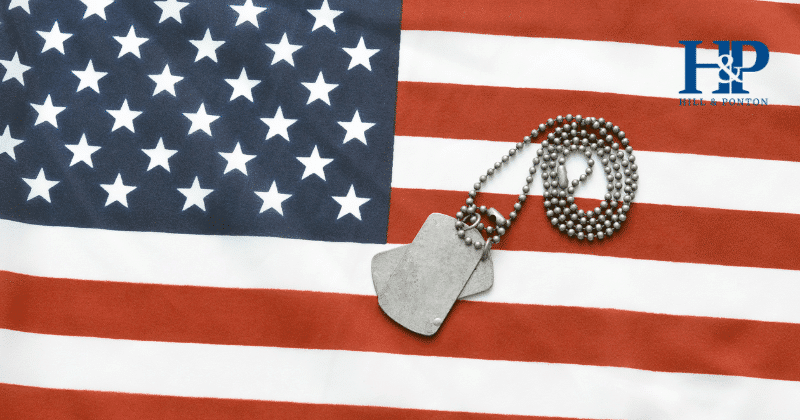Getting a favorable decision from the VA is a victory in and of itself. However, just because the VA granted your claim, does not mean they haven’t made any errors. It is important to make sure the VA gets the rating and the effective date right as well. These are both areas that the VA commonly makes mistakes in; however, today, we will look at errors that are often made by the VA in terms of assigning the correct effective date. Paying attention to details such as the correct effective date can make a huge difference when it comes to the amount of retroactive benefits you receive.
Error #1 – New & Material Evidence
This rule comes into play when new and material evidence is received by the VA within one year of the date a rating decision is issued. The basis for this rule is found in the Code of Regulations (38 C.F.R. § 3.156(b)), which says a claim is considered pending (still open) when “new and material evidence is received prior to the expiration of the appeal period, or prior to the appellate decision if a timely appeal has been filed.” For example, let’s say a veteran files claim on March 1, 2000. That claim is denied by the VA and a rating decision is issued on July 1, 2000. The appeal period lasts one year from the date of the decision and ends on July 1, 2001. The veteran submits new and material evidence one month before the end of the appeal period. If the veteran’s claim is eventually granted down the road, the effective date should be the date of his original claim. However, the VA will usually miss this and assign an effective date that corresponds with the date of the claim that is the basis for the most recent decision. Going back to our example, the decision denying the veteran’s claim becomes final if it is not appealed within the one year period. Five years later the veteran files again. This time around, the VA grants his claim. The problem is they assign an effective date of 2005 (the date the second claim was filed). The veteran submitted new and material evidence back in 2001 before the appeals period had ended for that initial decision, which means the effective date should be the date of the original claim (March 1, 2000) rather than the date of the second claim in 2005.
Error #2 – Service Records Received After a Final Denial
The regulation that lays out this effective date rule can be found here. This rule is relevant when there has been a denial of benefits, and then later the claim is granted based on service records the VA received later on. For example, a veteran files a claim in 1980 which is denied. That denial is never appealed and becomes final. Ten years later, the veteran files again. This time around however, the VA has service records that they did not have when they decided the first claim. Based (at least in part) on these service records, the VA grants the veteran’s claim this time. The VA then assigns an effective date corresponding with the date of the second claim (1990). This would be an error on the part of the VA. The correct effective date should go back to 1980 because the VA’s grant was based on service records that were not considered in the original denial. Keep in mind that the VA’s decision to grant must be based (at least in part) on the newly obtained service records.
Error #3 – Intent to File
Veterans may file what is known as an “intent to file” to preserve an earlier effective date. Currently, this is done by submitting a VA Form 21-0966. Prior to March 2015, veterans could file what was known as an “informal claim.” Regardless of what they are called, the purpose of these actions is to preserve an earlier effective date. If a veteran files an intent to file form (or previously had filed an informal claim), and then they submit a formal claim (on a VA Form 21-526) within a year, the effective date assigned would be the date of the intent to file. For example, a veteran files a VA Form 21-0966 on July 1, 2015 and then files a formal claim on the VA Form 21-526 on April 1, 2016. If the veteran’s claim is granted, the VA must assign an effective date of July 1, 2015 (the date the veteran filed their intent to file).
Food for Thought – Failure to Inform
The VA has a duty to let veterans know of benefits they may be entitled to and how to apply for those benefits. Specifically, whenever a veteran (or their qualifying survivor/dependent) first files for any type of benefit from the VA, the VA must provide “information concerning benefits not later than three months after the date of filing.” Also, the VA is required to provide “aid and assistance to members of the Armed Forces, veterans, and eligible dependents in the preparation and presentation of VA claims.”
Unlike the previous two paths to an earlier effective date, this one is not a regulation. Instead, this path is more of a theory. An argument could be made that if a veteran would have filed their claim earlier had the VA complied with their duty to inform they should be entitled to an effective date earlier than the date the claim was actually filed. Unfortunately, this argument has not been met with much success.
Finally – A Word of Caution
Rules regarding effective dates are filled with exceptions and hidden details, making it a very complicated area of VA disability law. However, having a general awareness of the kinds of errors the VA might mean the difference between receiving a retroactive payment of $50,000 and $250,000.



